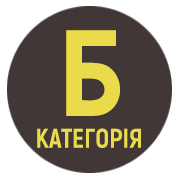PRAGMATICS OF THE COMIC IN W. CHURCHILL’S AND V. ZELENSKYY’S RHETORIC OF WAR
DOI:
https://doi.org/10.32782/folium/2024.4.38Keywords:
political speech, political leader, humor, irony, sarcasm, satireAbstract
The article substatiates the role of the comic in the rhetoric of political leaders in the context of military conflicts: W. Churchill during the Second World War and V. Zelenskyy during the full-scale russian-Ukrainian war. The objective of the article is to determine the functions of the comic in W. Churchill’s and V. Zelenskyy’s rhetoric in the context of military and crisis situations and establish its impact on the audience. The conducted research demonstrates that various types of the comic (humour, irony, sarcasm, and satire) are a powerful communication tool that raises morale, unites people, demoralizes the enemy, mobilizes the population, and spreads certain ideas. Humour and irony are viewed as mechanisms used to maintain morale and instill hope in the population, while sarcasm and satire serve to ridicule the enemy and expose their failings. W. Churchill used satirical metaphors to humiliate the enemy. Satire and sarcasm helped the Prime Minister of Great Britain ridicule the enemy and encourage the population by contrasting the expectation and reality of the enemy's actions. V. Zelensky skillfully uses irony and sarcasm to promote patriotism. The comic becomes a powerful tool in the psychological and information war, demonstrating the strong position of the nation thanks to the ironic statements of the President of Ukraine. The use of the comic in the speeches of political leaders helps people feel part of something more important and gives strength to overcome difficulties. Effective use of the comic by speakers requires a thorough approach that takes into account the context and historical events.
References
Баранова С. В., Калініченко І. П. Гумор у політичному дискурсі. Південний архів. Серія: Філологічні науки. 2019. № 80. С. 20–23.
Блинова І. А., Зернецька А. А. Гумор як різновид комічного: критерії виокремлення, теорії реалізації і засоби вираження. Вчені записки ТНУ імені В. І. Вернадського. Серія: Філологія. Журналістика. 2021. Т. 32 (71), № 1. С. 35–43.
Великий тлумачний словник сучасної української мови. URL: https://1531. slovaronline.com/search?s=іронія.
Вусик Г. Л., Рула Н. В. Художні засоби творення комічного в політичних промовах Президента України Володимира Зеленського. Вчені записки ТНУ імені В. І. Вернадського. Серія: Філологія. Журналістика. 2022. Т. 33 (72), № 6. C. 25-30.
Кондратенко Н. Гумор в українському політичному дискурсі. Культура слова. 2019. № 91. С. 112–121.
Кривенко С.-В. О. Семантична парадоксальність політичного дискурсу (теоретико-методологічний аналіз) : дис. на здоб наук. ступеня канд. політ. наук. Львів, 2016. 216 с.
Савіна Ю. О. Когнітивна природа комічного та вербальні засоби його створення у художньому тексті (на матеріалі «малої» прози Дж. К. Джерома й О. Генрі) : дис. на здоб наук. ступеня канд. філолог. наук. Херсон, 2014. 258 с.
Савіна Ю. О. Лінгвопоетичні засоби створення комічного та їх відтворення у процесі перекладу (на матеріалі творів Дж. К. Джерома й О. Генрі та їх українськомовних перекладів). Закарпатські філологічні студії. 2019. Т. 2, № 9. С. 58–64.
Старкіна А. А. Маніпулятивний ефект гумору в англомовних публічних виступах та лінгвокультурні особливості його відтворення українською мовою : дис. на здобуття ступеня магістра зі спец. 035 «Філологія». Київ, 2020. 150 с.
Україну стільки разів хотіли знищити, але не змогли. Стримуючи російські дії, наші захисники підводять керівництво росії до думки: треба говорити. Не питайте Україну, коли закінчиться війна, питайте в себе, чому путін досі здатний її продовжувати. Ми працюємо над тим, щоб друзями України був увесь світ. «Мир», «перемога», «Україна» – три слова, задля яких ми боремося протягом уже ста днів після восьми років. Промови та звернення. Офіційне інтернет-представництво Президента України В.Зеленського. URL: https://www.president.gov.ua/ news/speeches.
Федорів Я. Р. Кінодискурс війни: потрійна перспектива інтермедіальності. Інтермедіальність на перетині наукових парадигм : ретроспектива і сучасність : матеріали ІІІ Міжнар. наук. конф. УАКЛіП, м. Київ, 21 трав. 2021 р. Київ, 2021. С. 52.
Чернюк Н. І., Ванганен Д. Е. Реалізація іронічного значення в англомовному дискурсі. Філологічні трактати. 2014. Т. 6, № 1. С. 130–138.
Чорновол-Ткаченко О. О. Еволюція та класифікація підходів до вивчення гумору у політичному дискурсі. Вiсник Харкiвського нацiонального унiверситету iм. В. Н. Каразiна. 2010. Вип. 63. С. 75–79.
Bateson G. Steps to an Ecology of Mind. Northvale, NJ, and London: Jason Aronson. 1972. P. 181–198.
Colston, H. L. Irony and Sarcasm. In: Attardo, S. (ed.), The Routledge Handbook of Language and Humor. London: Routledge. 2017. P. 238–249.
Give Us the Tools. Some Chicken, Some Neck. Broadcast on the Soviet-German War. Address to Congress Speech. America’s National Churchill Museum. URL: https://www.nationalchurchillmuseum.org/winstonchurchills-speeches.html.
Gregorowicz K. D. Democracy Now: the Effect of Political Comedy on Knowledge and Ideological Constraint, a Model of Humor-Triggered Cognition : doctoral dissertation. 2013. 245 p. URL: https://deepblue.lib.umich.edu/bitstream/handle/2027.42/102479/kryshag_1.pdf.
Jeffrey K. Tulis, The Rhetorical Presidency: New Edition. NED-New edition, vol. 31. Princeton University Press. 1987. 243 p.
Finucane M.The Affect Heuristic in Judgments of Risks and Benefits. 2000.
Seguin M. C. A Typically Sarcastic Tone of Voice? Yeah, Right! Ottawa Papers In Linguistics. 2007. Vol. 35. P. 161–183.
Sherwood S. Intersections of Wit and Rhetoric: Humor as a Rhetorical Enterprise. URL: https://www.ship.edu/globalassets/proteus/volume29-7sherwood.pdf.
William E. Scheuerman. Presidentialism and emergency government. In: Ramraj VV, ed. Emergencies and the Limits of Legality. Cambridge: Cambridge University Press. 2008. P. 258–286.











